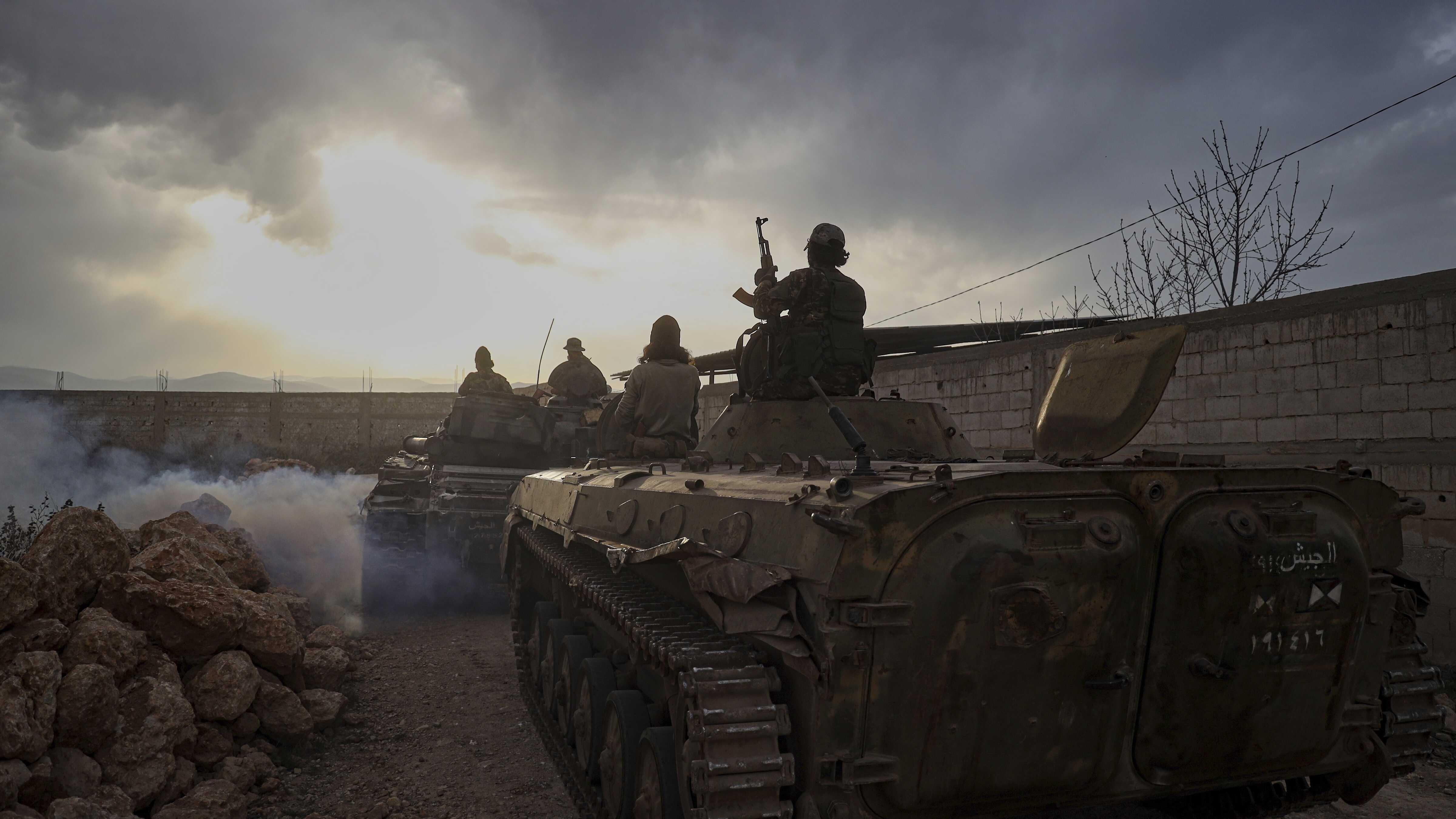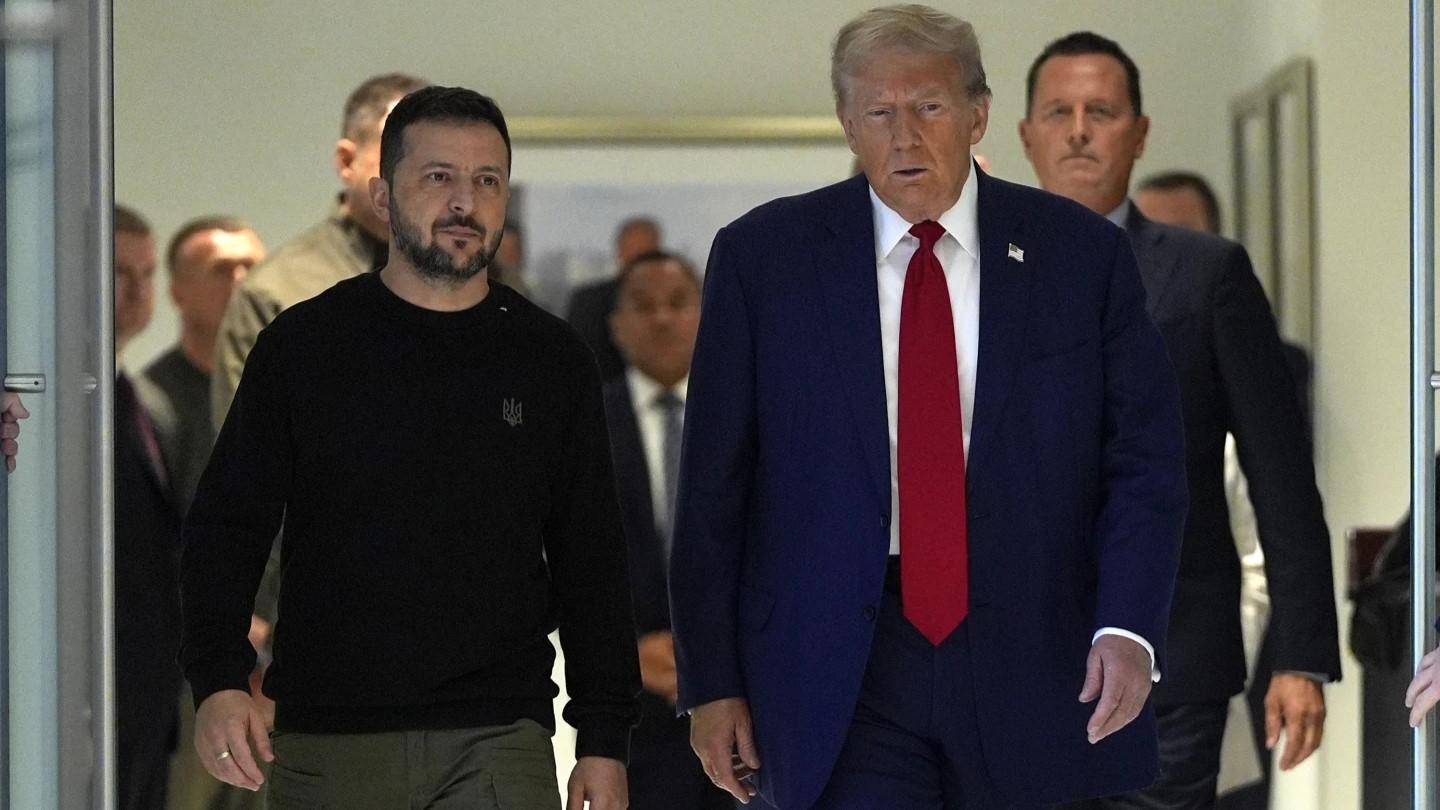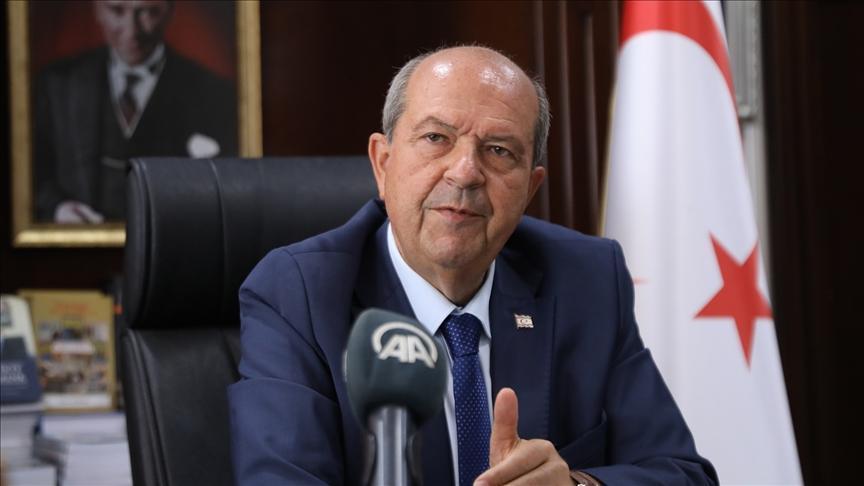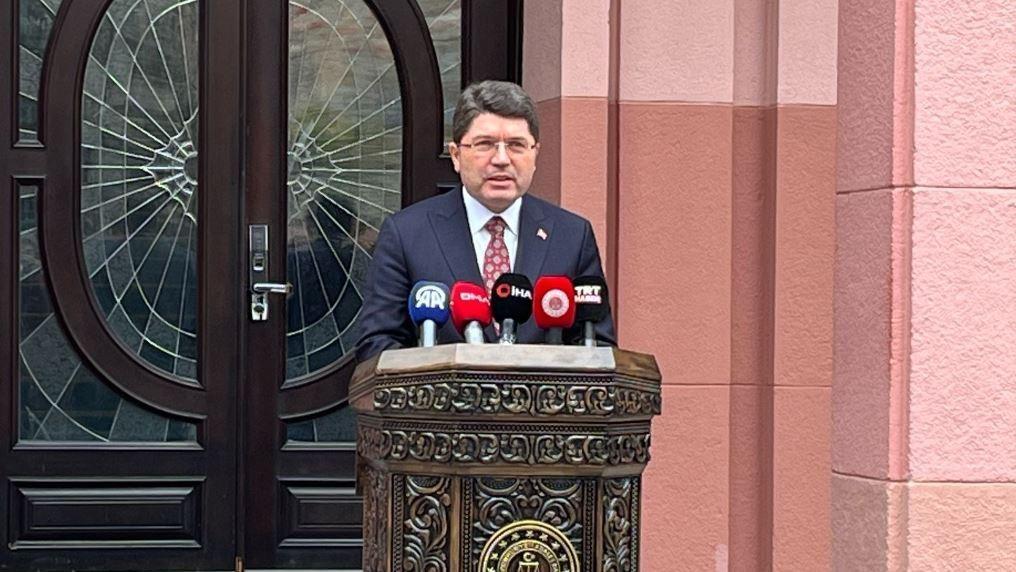Istanbul court releases seven Cumhuriyet journalists, executives, five to remain under arrest
ISTANBUL
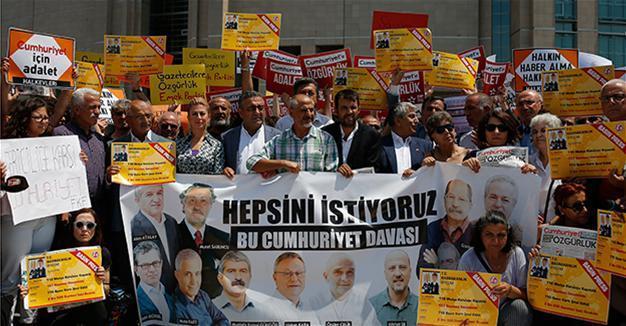 An Istanbul court on July 28 ordered the release of seven daily Cumhuriyet journalists, executives but ruled for the continuation of arrest for another five who are being accused on charges of “supporting terror.”
An Istanbul court on July 28 ordered the release of seven daily Cumhuriyet journalists, executives but ruled for the continuation of arrest for another five who are being accused on charges of “supporting terror.” The released journalists and executives were cartoonist Musa Kart, Bülent Utku, Turan Günay, Önder Çelik, Kemal Güngör, Hakan Karasinir and Güray Öz.
However, the court rejected the release demand of journalists Ahmet Şık, Kadri Gürsel, Murat Sabuncu, Kemal Aydoğdu and board member Akın Atalay.
Arrest warrants for the daily’s former-editor-in-chief Can Dündar and İlhan Tanır also remained on place.
The next hearing of the case will be on Sept. 11.
Earlier, the prosecutor had demanded the release of five including cartoonist Musa Kart, Güray Öz, Turhan Günay, Kemal Güngör and Bülent Utku while demanding the continuation of arrest of editor-in-chief Murat Sabuncu, Ahmet Şık, Akın Atalay and Kadri Gürsel.
He also demanded a criminal complaint against Şık's testimony.
The hearings of the daily's 17 journalists and executives ended on July 28 after they have testified over the past five days after being held for more than 270 days.
The charges directed at them include “membership of an armed terrorist organization” and “helping an armed terrorist organization while not being a member of it.”
Eleven of the suspects have been held in jail under arrest, with the other six already released pending trial.
If convicted, they face varying terms up to 43 years in prison.
Earlier in the day, members of the “Cumhuriyet Trial Commission” demanded the release of the journalists.
“Enough has been said and for many today is clearer than yesterday. Now it is a time for decision for the judges. Either this oppression will end today and all Cumhuriyet laborers will be released or they will insist on the continuation of the tyranny,” journalist Ceyda Karan said in a press statement, adding that they would start a “freedom watch” in front of the courthouse if the journalists are not released.
During their defenses, the lawyers demanded their clients’ immediate release, criticizing the indictment of not giving a fair trial to the journalists and executives.
The last hearing got underway with Gürsel’s lawyer, İlkan Koyuncu, stating that there was not a concrete accusation directed at the journalist in the indictment.
Lawyer for Çetinkaya, Kaan Karcıoğlu, said the prosecutor did carry out a serious investigation because the journalist had warned in his columns of the danger posed by the Gülen network.
The other lawyers also stressed the insufficiency of the indictment, saying there were irrelevant charges directed at the journalists.
Earlier on July 27, the U.S. also urged Turkey that it expects the release of the journalists.
“We continue to urge the government of Turkey to respect and ensure freedom of expression, fair trial guarantees, judicial independence, other human rights and fundamental freedoms, and to also release the journalists and others who we believe are being held arbitrarily under the government’s state of emergency,” State Department spokeswoman Heather Nauert told a daily press briefing.
Prosecutors are seeking sentences between 7.5 and 15 years in prison for former editor-in-chief Can Dündar, Sabuncu, Gürsel, Aydın Engin, Bülent Yener and Günseli Özaltay for “helping an armed terrorist organization while not being a member.”
Akın Atalay, Mehmet Orhan Erinç and Önder Çelik are charged with “helping an armed terrorist organization while not being a member” and “abusing trust,” with the prosecutor demanding between 11.5 and 43 years in jail for them.
Between 9.5 and 29 years in jail is demanded for Bülent Utku, Kart, Hakan Karasinir, Mustafa Kemal Güngör and Hikmet Aslan Çetinkaya on the same charges as those directed at Atalay, Erinç and Çelik.
In addition, the prosecutor sought between 7.5 and 15 years in prison for Şık for “helping and being a member of the outlawed Kurdistan Workers’ Party [PKK] and the outlawed Revolutionary People’s Liberation Party-Front [DHKP-C].”


